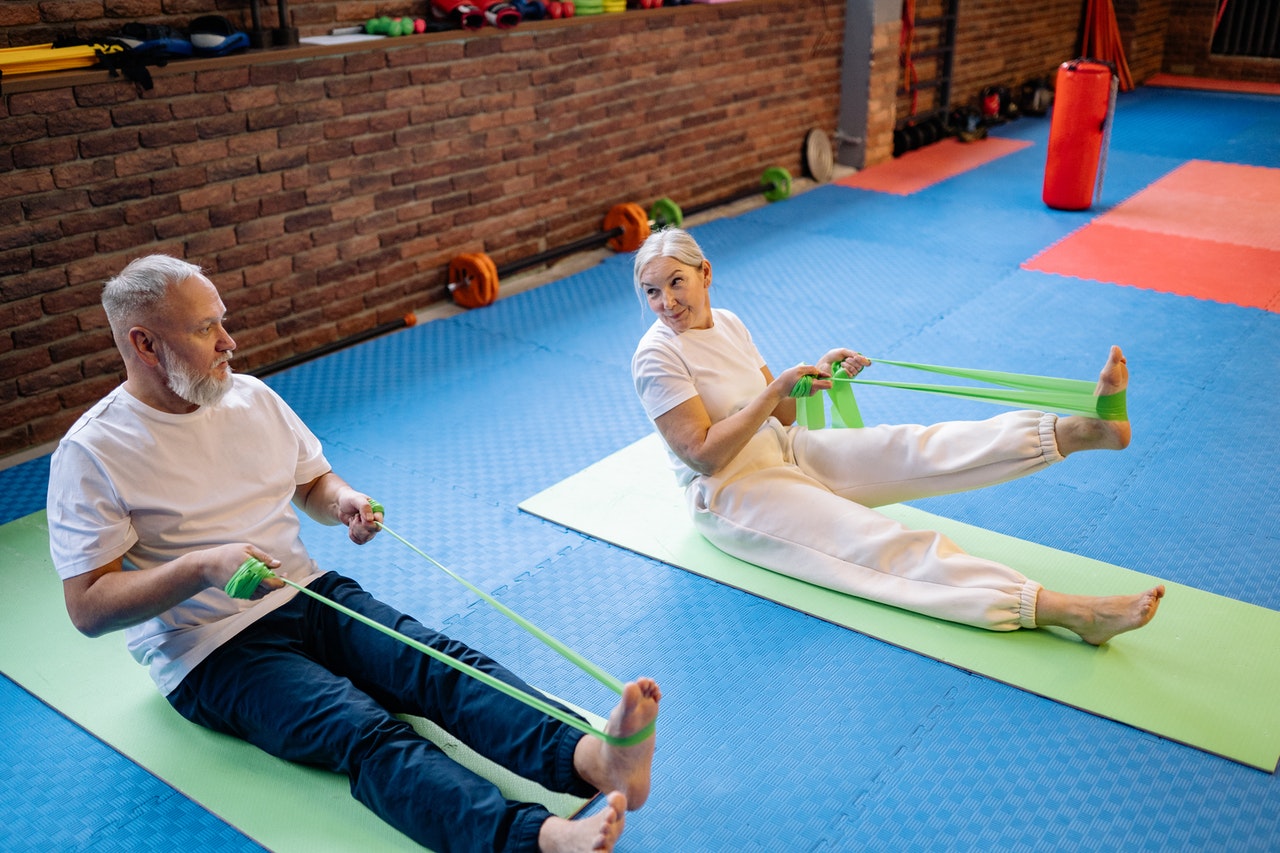
Importance Of Exercise As You Age
Why is it important?
Exercise is an important activity that should be done by everyone, and it becomes even more important as we age. As we get older, activities we have loved to do most of our lives become more difficult to perform. With the help of regular exercise, our ability to do our favourite things can be elongated. Research conducted by the CDC has shown that exercise in general has numerous benefits including a healthier brain, weight management, reduce your health risk to cardiovascular disease, type 2 diabetes and metabolic syndrome, some cancers, improve quality of life, strengthen your bones and muscles, improve your ability to do daily activities and prevent falls, and increase your chances of living longer.
Benefits
Healthier Brain
Affects on the brain are relatively immediate after a session of moderate to vigorous physical activity. Exercise increases your heart rate which in turn pumps more oxygen to your brain. It promotes brain plasticity by stimulating growth of new connections between cells in the cortical areas of the brain. It also provides you with a natural anti-depressant and leads to a drop in stress hormones as found in those experiencing a “runner’s high”.
Weight Management
Two benefits related to weight management through exercise are to lose weight and maintain your weight. Typically, losing weight through exercise is also associated with switching your diet as well. This could include daily walks and reducing the number of sugars and unhealthy fats you consume on a regular basis. Once you get to a target weight, maintaining your weight can be done through working your way up to 150 minutes of exercise each week of moderate-intensity aerobic activity (for example 30 minutes a day, 5 times a week). This amount can vary from person to person, so if you are not able to maintain your weight after a few weeks of your exercise regiment, you may want to increase it.
Reduce your health risk
The top 3 causes of death in Canada in 2019 were cancer, diseases related to the heart, and cerebrovascular diseases. To reduce your risk for diseases related to the heart and cerebrovascular system getting at least 150 minutes of exercise each week can help lower your risk. With regular physical activity you can also lower your blood pressure and improve your cholesterol levels.
The benefits of exercise even extend to reducing your risk of developing certain kinds of cancer. Research shows that adults who participate in greater amounts of physical activity have reduced risks of developing cancers of the:
- Bladder
- Breast
- Colon (proximal and distal)
- Endometrium
- Esophagus (adenocarcinoma)
- Kidney
- Lung
- Stomach (cardia and non-cardia adenocarcinoma)
Strengthen bones and muscles
As you age, it is very important to protect your bones, joints, and muscles as they support your body and help you move. Keeping bones, joints, and muscles healthy can help ensure that you are able to do your daily activities and be physically active. Doing aerobic, muscle-strengthening, and bone-strengthening physical activities at a moderately-intense level can slow down the loss of bone density that comes with age.
Physical activity can also help reduce your risk of hip fractures and risk of falling and injuries associated with falls. This is most effective when your physical exercise regiment includes more than one type of physical activity. This can include aerobic, muscle strengthening, balance physical activities, and weight bearing activities such as running, brisk walking, jumping jacks and strength training exercises. These activities can help promote bone growth and strength and reduce the risk of fall related injuries.
Overall, regular physical activity can improve your quality of living, increase your time of being independent and increase your life span.
What kinds of exercise can you do on a regular basis?
Please note, before starting any exercise regime, speak to your doctor first.
These are just examples for you to consider.
1. Walking
2. Water aerobics
Activities in the pool could include:
- Aqua jogging
- Flutter kicking
- Leg lifts
- Standing water push-ups (against the wall, roughly shoulder deep water), and
- Arm curls (The more your arms are underwater, the more resistance and the more difficult it can be)
3. Chair yoga
- Overhead stretch
- Seated cow stretch
- Seated cat stretch
- Seated mountain pose
- Seated twist
4. Resistance band workouts
- Leg press
- Triceps press
- Lateral raise
- Bicep curls
- Band pull apart
5. Pilates
- Mermaid movement
- Side circles
- Foot slides
- Step ups
- Leg circle
6. Body weight workouts
- Squat to chair
- Step up
- Bird dog
- Lying hip bridges
- Side lying circles
7. Dumbbell strength training
- Bent over row
- Tricep extension
- Bicep curl
- Overhead press
- Front raise
Exercise’s seniors should avoid:
- Squats with dumbbells or weights
- Bench press
- Leg press
- Long-distance running
- Abdominal crunches
- Upright row
- Deadlift
- High-intensity interval training
- Rock climbing
- Power clean
Contact us today for more information about Ottawa dementia care services or healthy exercise routines for seniors. Email at: info@myplacehomecare.ca or Call: 613-686-6366

